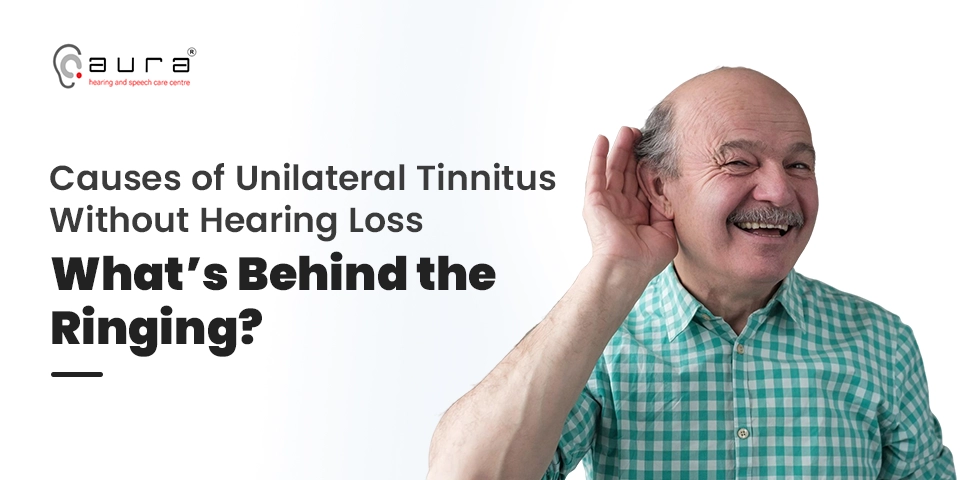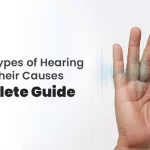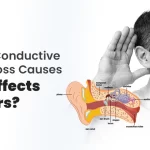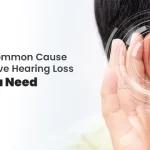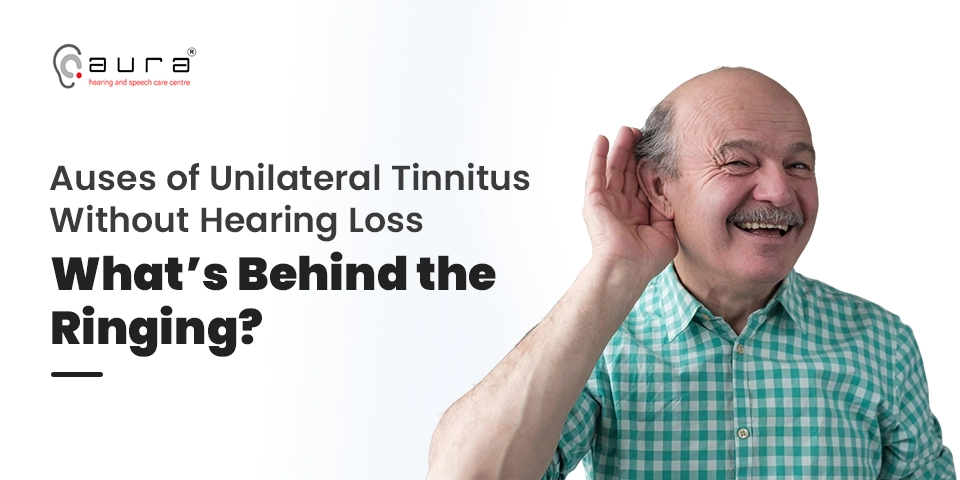
Unilateral tinnitus is a medical condition in which a person hears sounds like ringing, roaring, buzzing, or whistling only in one ear. It is mainly caused by a buildup of earwax, prolonged exposure to loud noise, medications, and underlying disease. If someone hears the noises in both ears, it is called bilateral tinnitus.
According to the National Institution on Deafness and Other Communication Disorders (NIDCD), between 10-25% of adults have tinnitus worldwide.
In this blog, we will discuss the causes, symptoms, diagnosis, and treatment of unilateral tinnitus, and when it is important to seek medical help.
Common Causes of Unilateral Tinnitus:
Earwax: Things like earwax buildup, fluid, or objects stuck in your ear can cause infections or blockages, which might lead to tinnitus.
Aging: Getting older or being around loud noises can damage your inner ear. This damage is primarily linked to tinnitus.
Menière’s Disease: This inner ear problem affects fluid balance and can cause dizziness (vertigo), hearing loss, and tinnitus, usually in just one ear.
Injuries: If you hurt your head, neck, or ear, it can damage the hearing system or nerves, possibly causing tinnitus in one ear.
Issue in Blood Vessels: Problems with blood flow near your ear, called pulsatile tinnitus, can lead to a pulsing or whooshing sound.
Major Symptoms of Unilateral Tinnitus:
- Constant ringing, hissing, or roaring sound in one of your ears.
- More sounds make symptoms worse.
- Sensitivity to sound
- Difficulty in locating sound
5- Feeling of pressure or fullness in ear
Diagnosis of Unilateral Tinnitus:
Doctor Counselling: Counselling can help patients understand their condition and deal with associated symptoms like anxiety, stress, and depression.
Masking: Listening to calming sounds or white noise can cover up the tinnitus sound. This can make the symptoms less disturbing.
Hearing Aids: A hearing aid can improve hearing loss and may also include a masking noise feature. Aura Hearing Care offers a range of advanced hearing aids, including:
o Receiver In Canal (RIC): The device is compact and hidden, good for people new to hearing aids.
o Completely in the Canal (CIC): It is designed to fit completely inside your ear canal.
o Invisible in Canal (IIC): This is a minimal device, almost totally hidden, with just a tiny part to help take it out.
o In the Canal (ITC): Fits partly in the ear canal, with a small portion showing.
o In the Ear (ITE): This is a personalized hearing aid, designed to fit the outer ear for comfort.
o Behind the Ear (BTE): This device is the most used type and is available in different sizes.
Medication: Certain medicines like antidepressants can relieve mental symptoms, and benzodiazepines like alprazolam can help with stress, which can make tinnitus worse.
When to see a doctor
In case ringing in one ear bothers you a lot or makes it hard to hear, see a doctor. Get immediate medical help right away if you also get headaches, can’t see well, or lose your partial hearing.
Conclusion:
Unilateral tinnitus symptoms in one ear are accompanied by hearing loss and other medical conditions. However, in case you experience a headache and blurred vision, you should immediately seek medical help. Proper diagnosis and treatment on time are very important to treat tinnitus. The doctor will advise you on the most suitable management strategies after evaluating your condition.
If I have unilateral tinnitus, does that mean I’m going deaf?
No. Tinnitus itself doesn’t directly cause hearing loss. However, they often share underlying causes, like noise damage or age-related changes. It’s important to get a hearing test to identify if any actual hearing loss is present.
Can the ringing in my ears make it harder to hear?
Yes. Even without actual hearing loss, tinnitus can make it difficult to hear clearly. The constant noise can distort sounds, especially in noisy environments, making it seem like you have a hearing loss problem.
What can I do to prevent tinnitus and protect my hearing?
Protecting your hearing from loud noises is important. Wear earplugs or earmuffs in noisy environments and keep the volume down on headphones. Moreover, maintaining a healthy lifestyle and addressing underlying health conditions can also help.
Does Aura Hearing Aid provide hearing aids for unilateral tinnitus?
Yes, if medicine doesn’t fix it, Aura Hearing Aid has the best hearing aid options to make sounds clear and improve your hearing.
How can I book a consultation with Aura Hearing Aid?
You can go to our website (Types of Hearing Aids | Find the Best Fit for Your Needs) or call us to make an appointment with our hearing experts.




